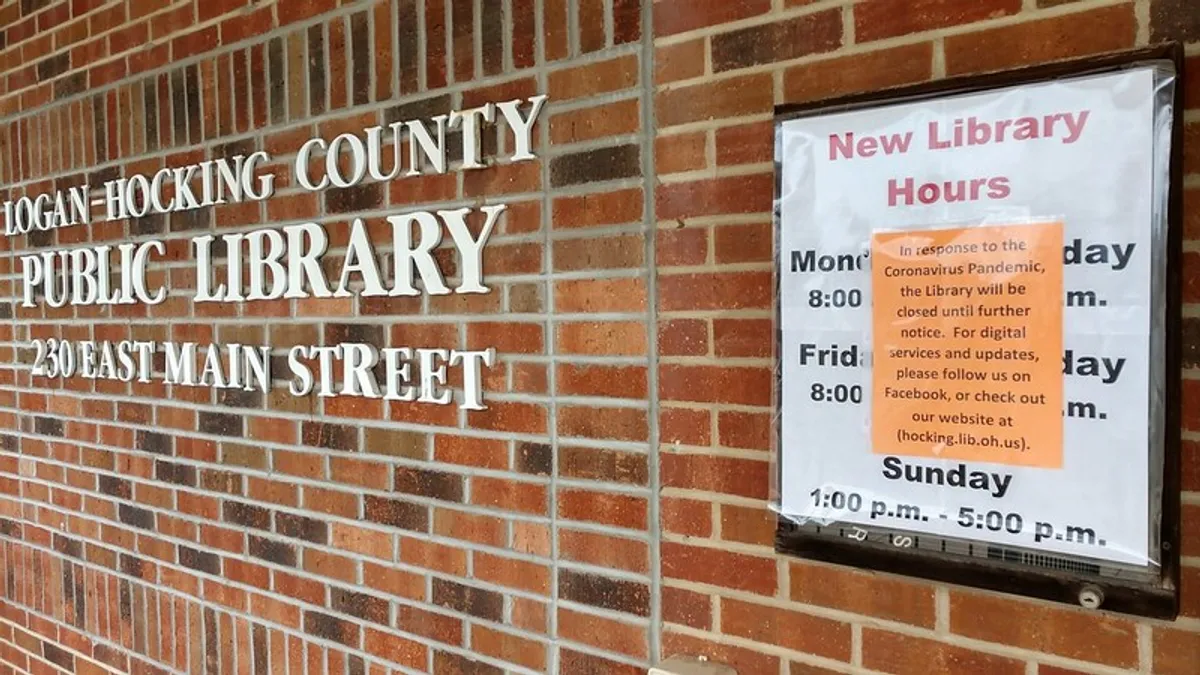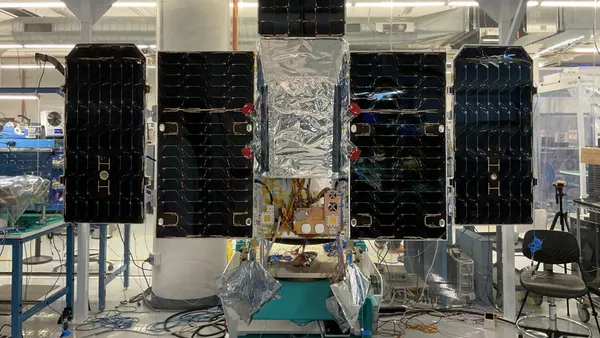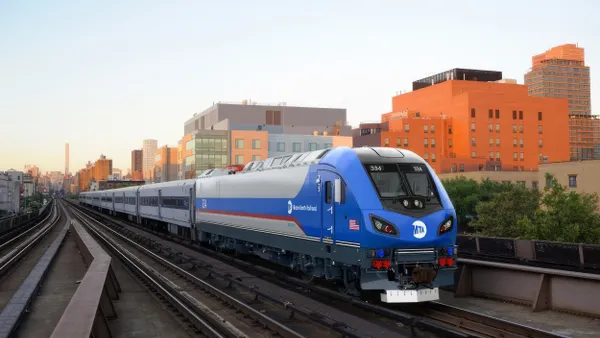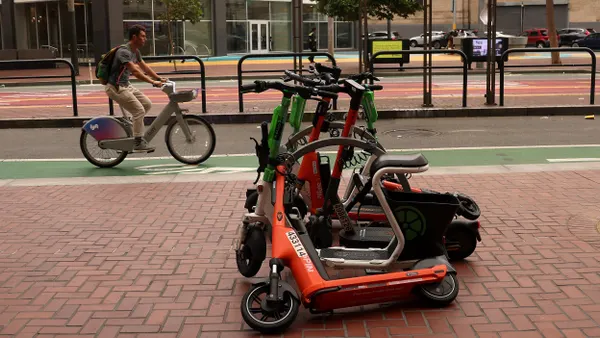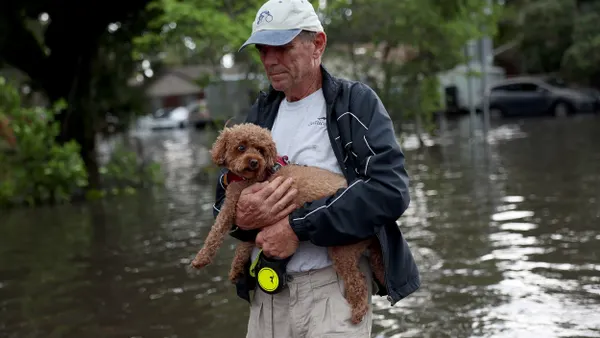When the San Antonio Public Library reopens its doors today, operations will be far from business-as-usual.
For starters, book rentals will require an entirely new checkout process. Patrons will reserve items in advance and retrieve their materials outside the physical building as part of the library's new "contact-free pickup" service.
Nine of San Antonio's 29 library locations will offer access to public computers and the internet — but by appointment only. Each location will allow a limited number of users at a time, requiring staff to spend up to 45 minutes cleaning and disinfecting surfaces between each group. Those nine libraries will be in low-income or high-need areas, according to San Antonio Public Library Director and Public Library Association President Ramiro Salazar.
"The old normal is not coming back anytime soon," he told Smart Cities Dive. "We have to be creative, we have to figure out a way to continue to provide impactful service."
The San Antonio Public Library is one of many U.S. libraries grappling with how to provide essential services — like computer and internet access — amid cities' reopening from the COVID-19 pandemic. This is being done through the implementation of new health and safety protocols; phasing the reopening of operations; sanitizing materials; deep cleaning interiors and requiring social distancing for patrons.
Libraries are also preparing to adjust budgets for what could be a dramatic reduction in funding in the next fiscal year.
Meeting patrons' needs
According to a May American Libraries Association survey, 62% of libraries are fully closed; 26% are open for curbside pickup; 11% have other limited access policies; and 1% are fully open. Thirty-seven percent of libraries said they anticipate reopening in June or July.
The most urgent needs among patrons for the next six months are anticipated to be access to physical materials (64%), public access to computers and the internet (60%), and job search and government application support (60%). The Hawkeye Community College Library in Waterloo, IA, for example, checked out 143 laptops to students to help them complete their online work.
"This helped some students persist who may not have in this new learning environment," a statement from the library reads.
Social distancing guidelines, however, have made it difficult for librarians to aid patrons who lack sufficient computer skills. The Morton-James Library in Nebraska City, NE, which has a budget of roughly $1 million, made its computers available at the onset of the pandemic. But the library decided to cancel the service after about a month as some patrons required assistance that would impede social distancing guidelines, library director Donna Kruse told Smart Cities Dive.
Adjusting to financial uncertainty
The City of Dallas, which anticipates a $25 million budget gap, has already furloughed 187 of its 400 library employees. Meanwhile, the City of San Antonio, which is currently in the budget development process for the next fiscal year, anticipates its budget to fall by $200 million.
"We expect that we will need to make budget cuts," Salazar said. "We are talking about how we can continue serving the community at a high level, without more resources."
The federal Coronavirus Aid, Relief and Economic Security (CARES) Act distributed $50 million to the Institute of Museum and Library Services, but with over 16,500 libraries nationally and many cities facing severe budget shortfalls, the funding likely won't be ample enough for many locations.
"At the risk of sounding ungrateful, it's not a lot," Salazar said.
The San Antonio Public Library hasn't received any of the CARES Act funding yet, but they have applied for grants through the funding, with their requests primarily focused on bridging the digital divide, he said. And while the numbers may seem grim, Salazar said he's not discouraged.
"Libraries are the most democratic public institutions we have," he said. "Libraries can play a more important role [than ever] to bring together community."
To keep up with all of our coverage on how the new coronavirus is impacting U.S. cities, visit our daily tracker.



